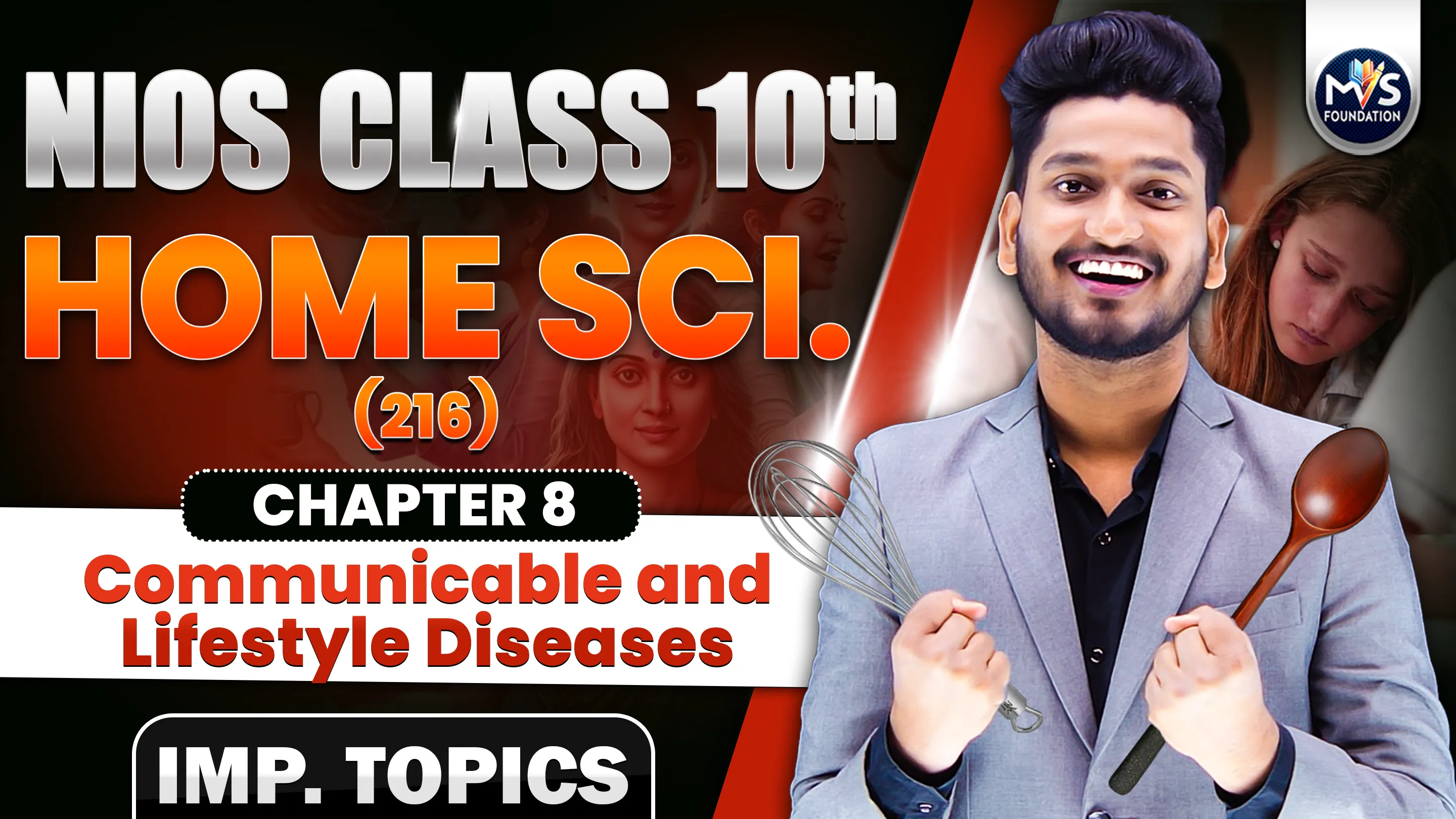
Get in Touch
We will get back to you within 24 hours.
Welcome to MVS Blog

NIOS Class-10th Chapter wise Important Topics
HOME SCIENCE(216)
Ch- 8 Communicable and Lifestyle Diseases
Ques 19. Give suggestions for prevention of lifestyle diseases.
Answer - Suggestions for prevention of lifestyle diseases are:
Ques 20. Shazia went to a fair and there she ate food covered in flies and dust. The next day he started vomiting and having diarrhea and started having pain in his legs. What do these symptoms indicate ? What steps will you take to care for the patient ?
Answer - Shazia went to a fair and there she ate food covered in flies and dust. The next day he started vomiting and having diarrhea and started having pain in his legs. Vomiting, diarrhea and pain in legs are symptoms of “cholera disease”.
The following steps should be taken to care for the patient:
|
List of foods to be given in cholera |
Forbidden foods in case of cholera |
|
Completely liquid diet: salt and glucose water, orange juice, curdled milk water, vegetable water, lemon water, rice starch, coconut water. |
|
|
Soft food: Soft cooked eggs, boiled rice, curd, khichdi, boiled potatoes, custard and sago pudding. |
Ques 21. Write the full form of HIV / AIDS. How does the HIV / AIDS virus spread? Also, suggest some preventive measures.
Answer - The full form of HIV/AIDS is:
HIV: Human Immunodeficiency Virus
AIDS: Acquired Immunodeficiency Syndrome
The HIV/AIDS virus spreads in the following ways:
(i) By unprotected sexual intercourse with an infected person.
(ii) By exchange of bodily fluids, for example blood transfusion.
(iii) Using contaminated needles while administering vaccines etc.
(iv) From infected mother to child during pregnancy or at birth.
As of now, there is neither any cure for HIV/AIDS nor any vaccine available to prevent it. However some preventive measures can be adopted:
✅ Click here to access all accurate and important topics!
Click here for Home Science (216)
0 Response